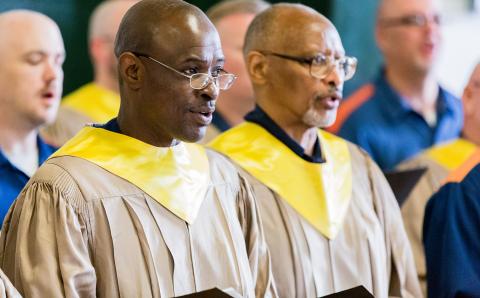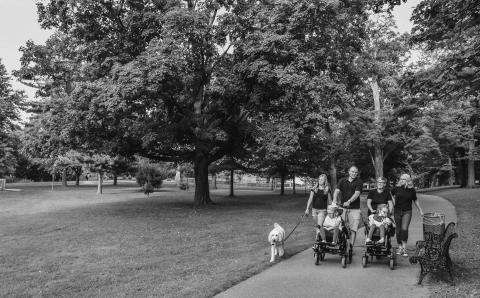“You don’t know what you don’t know.” I heard this phrase recently and it struck me. As someone who is always tempted by intellectual pride, I find the Holy Spirit often reminds me of my mind’s limitations. It is true that I don’t know what I don’t know, and that should humble me.
When I was younger, I felt more certain about a lot of theological things. But as I grew older, learning more theology, I began to recognize that there was a lot I didn’t know, and my previous certainties are now far less certain. I have drastically changed my mind on some of them. For instance, I used to be very certain that infant baptism was unbiblical, but after some rigorous study, I changed my mind. I changed not because of my feelings, but because I was convicted by Scripture. I wouldn’t have joined the Christian Reformed Church otherwise.
By learning better methods of studying Scripture and by seriously studying opposing viewpoints I began to see some of my previous intellectual blind spots. My previous certainty was based on insufficient knowledge.
The apostle Paul warned that “knowledge puffs up, while love builds up. Those who think they know something do not yet know as they ought to know” (1 Cor. 8:1-2, emphasis mine). Sadly, most Christians remember the first part of that warning, of knowledge puffing up, but neglect the second part. It is not simply intellectual knowledge in and of itself that leads to pride, but also insufficient knowledge and knowledge not joined to God’s love.
Modern psychologists call this the Dunning-Kruger effect, named after its original researchers. They found that less competent people tend to overrate their own abilities, while the reverse is true of the truly competent. Those who know more tend to be more humble about their abilities because they are more aware of their own limitations. They understand the vastness of available knowledge. Less competent people, on the other hand, know enough to function, but not enough to rightly evaluate their own incompetence. They are overly self-confident because they are ignorant of their ignorance.
A greater problem is that we often mistake such confidence and certainty for charisma and leadership. In turn, we often mistake intellectual humility for indecisiveness and cowardice. It is not unusual, therefore, for our world to reward and promote the less competent over the truly competent. (To be clear, the less competent are not totally incompetent. For example, we can have two doctors who both graduated from medical school but are not equally competent.)
How does this affect our theological arguments? I have learned over the years to pay greater attention to those biblical theologians who are more nuanced, less black-and-white, and more humble in their conclusions. But many Christians on either side of a debate often prefer those who make absolute statements with absolute certainty. I fear we might be rewarding and amplifying the wrong voices. The ones who shout “The Bible is absolutely clear!” might not be right even if they are absolutely certain of their positions. Their confidence and certainty might be based on insufficient knowledge.
I am more humble in my intellectual convictions now because I realize I probably still have intellectual blind spots. I continue to learn and grow in knowledge. But my faith does not depend on how much I know, but on knowing God, who holds me in love.
About the Author
Shiao Chong is editor-in-chief of The Banner. He attends Fellowship Christian Reformed Church in Toronto, Ont.
Shiao Chong es el redactor jefe de The Banner. El asiste a Iglesia Comunidad Cristiana Reformada en Toronto, Ont.
시아오 총은 더 배너 (The Banner)의 편집장이다. 온타리오 주 토론토의 펠로우쉽 CRC에 출석한다.
You can follow him @shiaochong (Twitter) and @3dchristianity (Facebook).








